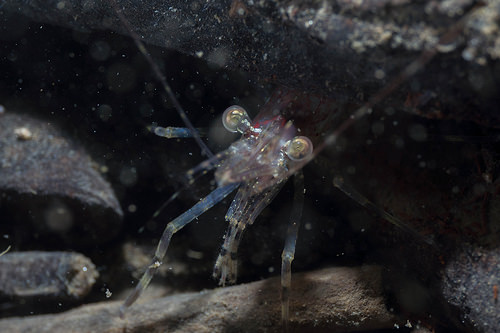An inexpensive, field-deployable, easy-to-use, and rapid method of detecting shrimp diseases was developed by Ateneo de Manila University (ADMU) and Southeast Asian Fisheries Development Center-Aquaculture Department (SEAFDEC-AQD). The project was funded by the Philippine Council for Agriculture, Aquatic and Natural Resources Research and Development of the Department of Science and Technology (DOST-PCAARRD) under the Philippine Shrimp Pathogenomics Program.

The rapid method, a genome (DNA)-based lateral flow strip biosensor (LFSB) kit, can detect white spot syndrome virus (WSSV) and other shrimp pathogens which remain a threat to many shrimp farms in the country. The test strips, which include an extraction and mobile device kit, can be used in the field and can detect more than one pathogens. The mobile strip reader has an accompanying application (app) that instantaneously allows the results to be uploaded to an online pathogen information resource and biosurveillance data center at SEAFDEC.
Early disease detection using LFSB kit can reduce WSSV and other shrimp diseases, resulting to a reduction of losses at 50%. The technology can support the Philippine shrimp industry, which accounts for more than 50,000 metric tons in terms of production.
The LFSB kit detects the WSSV shrimp pathogen with the use of a test strip, where the liquid shrimp sample is dropped. If the target DNA of the virus is present on the sample, a line will not appear on the middle of the test zone.
Meanwhile, the mobile device kit includes a mobile app that uses the camera as the detector. The mobile app then processes the image and indicates if the result is positive or negative. A QR code scanner and a mobile phone attachment for the test strip are developed for the app. The online data center will be hosted in the cloud via Amazon.
The technology’s target beneficiaries include shrimp growers association and satellite polymerase chain reaction (PCR) laboratories.
The DNA-based LFSB kit is one of the many initiatives of DOST-PCAARRD in connection with Outcome One.
Outcome One seeks to provide science-based know-how and tools that will enable the agricultural sector to raise productivity to world-class standards.
The DNA-based LFSB kit is one of the featured technologies during this year’s National Biotechnology Week (NBW) that is scheduled from November 23 to 28 at SM Dasmariñas, Cavite. DOST-PCAARRD showcases this technology in its booth for the six-day event.
NBW 2015 has the theme, Bioteknolohiya: Kaagapay ng Mamamayan sa Pambansang Kaunlaran. It also has the slogan, Angat Tayo sa Bioteknolohiya!
NBW is an annual celebration which kicked off in 2005 and was institutionalized in 2007 by virtue of Presidential Proclamation 1414. The event serves as a venue for government agencies, academic communities, and private institutions to create awareness about the role of biotechnology in food production and security.
by Rose Anne K. Mananghaya, DOST-PCAARRD S&T Media Service
